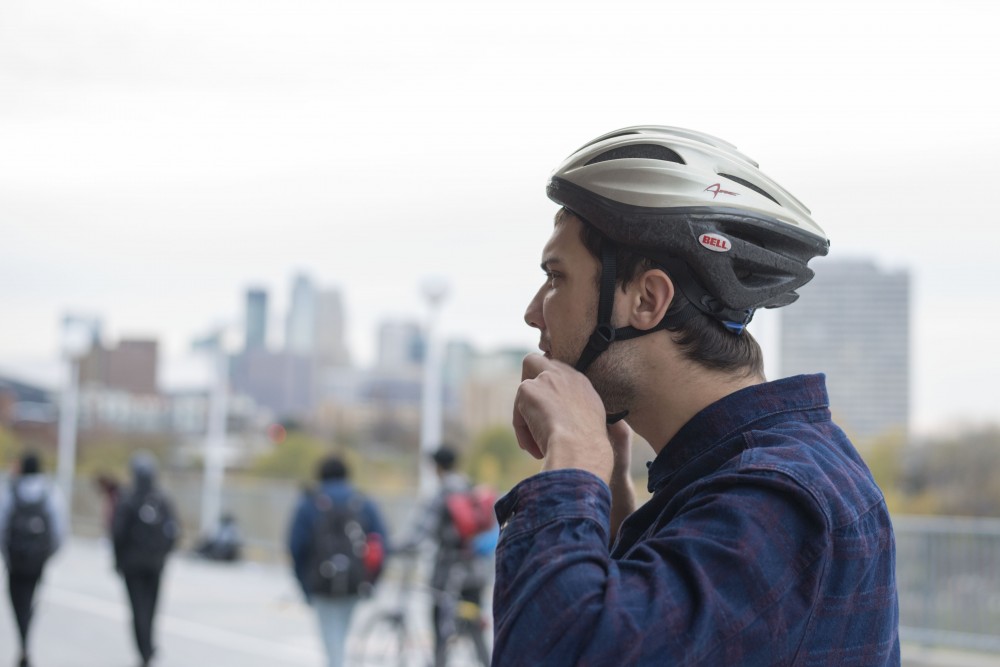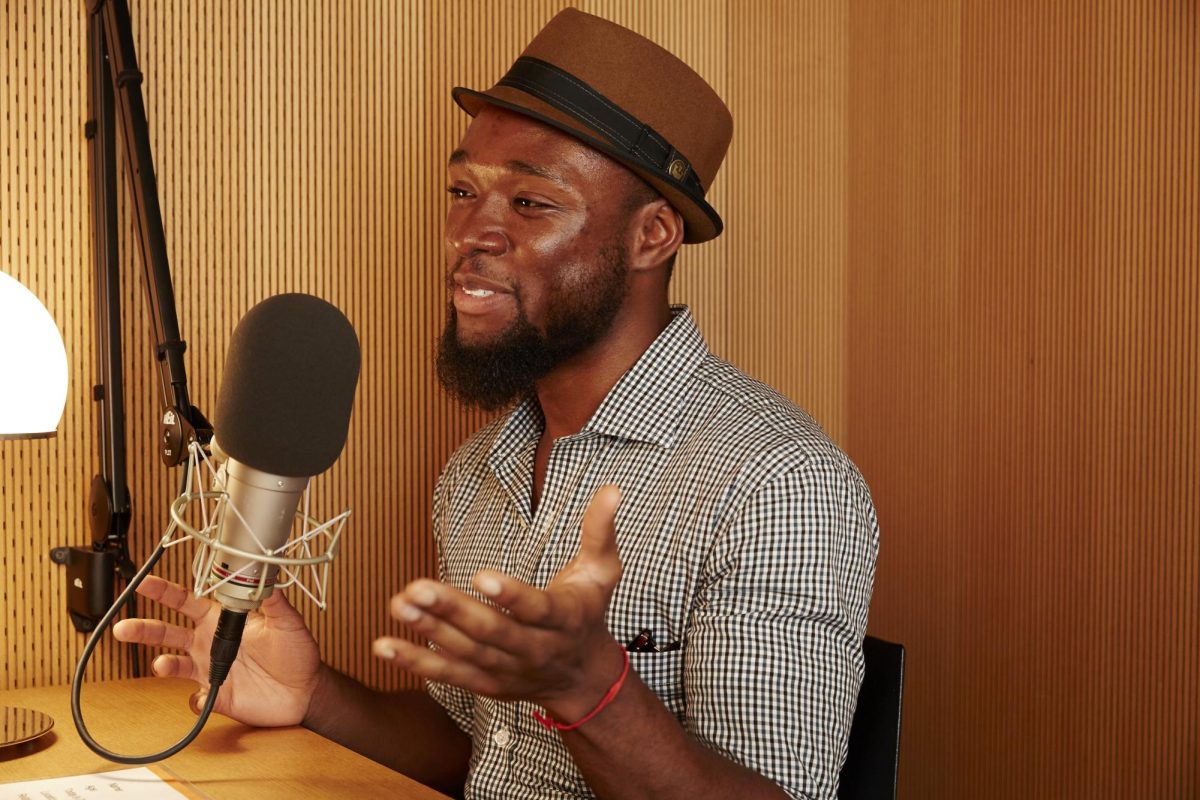Some University of Minnesota students say they make you look stupid or they’re a pain to carry — others won’t leave their apartment without one.
These students aren’t talking about heavy textbooks or eccentric umbrellas, they’re talking about bike helmets. The Minnesota Student Association is working on bringing a nation-wide bike program to campus in spring, with hopes that more bicyclists will wear helmets.
Bicycle Benefits, a program that encourages people to ride bikes and wear helmets, gives bicyclists discounts and deals to businesses participating in the program. Bicyclists wearing a helmet with a Bicycle Benefits sticker receive discounts when they present their helmets at participating businesses. Many Minneapolis businesses already partner with the program.
“Unfortunately, biking accidents do happen on this campus,” said Lauren Meyers, director of MSA’s Infrastructure Committee. “Whether they’re larger [accidents] or just a student falling off their bike, wearing a helmet can really help stop [these injuries].”
Because fewer people bike in the winter, MSA plans to implement the program in March, but the organization is currently recruiting businesses on and near campus to participate in the program. The stickers will be distributed to students with helmets at the University’s Bike Center and through MSA.
In 2017, Minnesota saw 801 bicycle collisions with a motor vehicle, according to an annual report generated by the Minnesota Department of Public Safety.
Of the 738 bicyclists injured from those collisions last year, around 43 percent of them were under the age of 25, according to the report.

With many bicyclists choosing not to wear helmets, MSA member said they hope their efforts will encourage members of University community to make a safe decision.
Meyers said she doesn’t think business deals and discounts will be enough to incentivize people to wear helmets, but she hopes it will encourage more conversations about safe bike-riding practices.
“I’m hoping that this program can be more helpful in starting a conversation and making students aware of how important it is to be a safe biker,” she said.
On Tuesday, the Minnesota Daily counted 128 bicyclists pass Bruininks Hall during a 15-minute period. Around 80 percent of the bicyclists were not wearing a helmet. Bicyclists are not legally required to wear a helmet.
When questioned, some students, like business and marketing education senior Nathan Jelinek, said they believe wearing a helmet is not necessary on campus.
“I think Minneapolis is a safe enough city,” Jelinek said. “I’m aware enough that I don’t think a helmet would help.” He added that his mild speed and the city’s bike paths contribute to his reasoning for not wearing a helmet.
Other students, like physics sophomore Jacob Hanson, said they wear helmets every time they hop on a bike. Hanson’s hometown neighbor got into a bike accident resulting in serious injuries, Hanson said. So he said he always wears a helmet when riding a bike.
“I’m the nervous type, and I feel like the one time I don’t wear it something will happen,” Hanson said.
Minneapolis currently has 64 organizations participating in the Bicycle Benefits program. Each business decides what deal or discount they will offer when people show their sticker-clad helmets.
So far, Como Avenue’s Black Coffee and Waffle Bar and M Dining are the only businesses near or on the University campus offering discounts, Meyers said.
The University’s Parking and Transportation Services already has a bike incentive program in place, but Bicycle Benefits is different because it requires students wear helmets, Meyers said.
“Yes, wearing a helmet might mess your hair up and be inconvenient now,” Meyers said. “But, getting a serious injury would be quite a larger inconvenience.”








